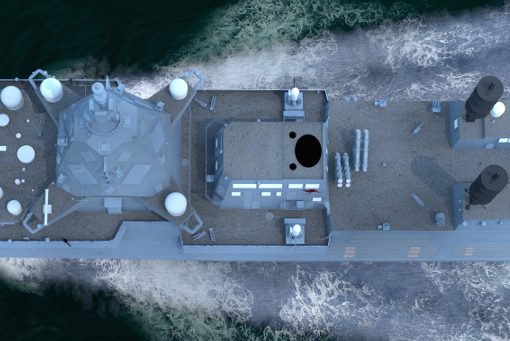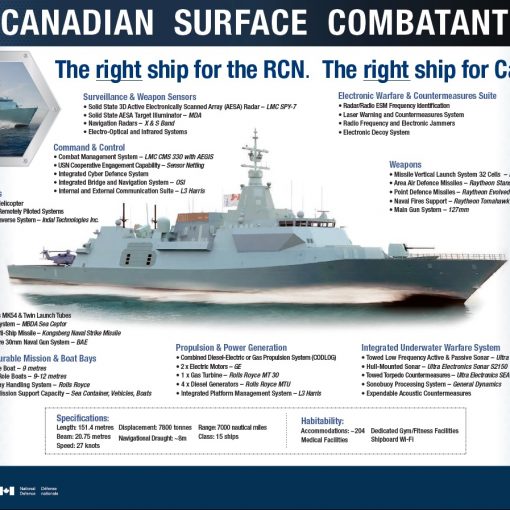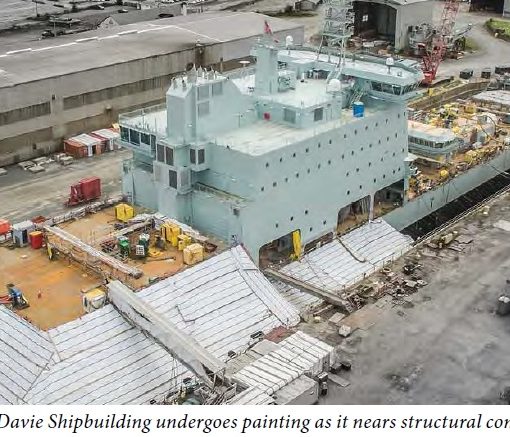Procrustes, 30 May 2020.
Here is a brief background of the Alion complaint. Alion was one of the 12 pre-qualified Canadian Surface Combatant (CSC) bidders, and one of the three companies which actually submitted a bid. On 19 October 2018, Lockheed Martin Canada Inc (LMC) was selected as the Preferred Bidder for the CSC.
Shortly thereafter, on 21 November 2018, Alion filed a complaint to the Canadian International Trade Tribunal (CITT) alleging that LMC’s Type 26 design was incapable of bid compliance with certain mandatory technical requirements of the CSC RFP. The gist of Alion’s complaint was that the winning bid failed on three aspects of the Request For Proposal (RFP): maximum speed; sustained speed under specified conditions; and crew berthing spaces. Alion also covered several aspects which it believed entitled it to bring its complaint to the CITT (e.g., Alion was a ‘potential supplier’ legally incorporated in Canada, the national security exemption unilaterally invoked by Irving did not apply, its complaint was timely, etc.)
The Rulings [1]
On 27 November 2018, the CITT ordered the postponement of the award of any contract in connection with the CSC RFP. On 6 December 2018 Public Works and Government Services Canada (PWGSC) requested the recession of the order, and not very long after, on 10 December 2018 the CITT rescinded its previous order and ruled that the design award could go ahead.
Both PWGSC and Irving Shipbuilding Inc. (ISI) intervened in mid-December 2018 claiming that Alion’s complaint was unwarranted because Alion, as a foreign company, could not appeal to the CITT, and that the ‘national security exemption’ under which the competition was being held precluded the CITT from having jurisdiction in this matter.[2] Basically, the CITT ruled that Alion lacked ‘standing’ to make a complaint, and therefore its complaint was dismissed. Later, Canada’s Federal Court upheld the CITT ruling.
The Curious Question
Notwithstanding the substantive merits of Alion’s case, why was Alion considered to have sufficient standing to be allowed as a pre-qualified bidder in the CSC design competition, yet later it was deemed to have no ‘standing’ to file a formal complaint about the final bid selection?
As it turned out, Alion’s complaint foundered on a legal procedural technicality, and the merits of the claims about the shortcomings of the Type-26 design were never adjudicated. In the end, Canadians do not know whether or not the CSC RFP was changed to allow the Type-26 bid, or whether the Type-26 design actually fell short of the CSC operational requirements as Alion alleged. Nor is it clear exactly what recourse was available to Alion given its concerns about the Type-26 Bid Concept Design.
The Fairness Monitor’s reports on the CSC Request for Proposal (RFP) process remain opaque as far as the nature of the fairness issues raised, the content of the bidder engagements, or how these matters were resolved.
For example, the 12 November 2018 Fairness Monitor’s Evaluation Report for the CSC RFP cites a total of 87 amendments to the RFP up to the closing date for bid submissions on 30 November 2017, including an Updated and Revised RFP on 30 May 2017 (indeed, 2 such changes came after the deadline). However, there is no hint as to the nature of these amendments or even whether they were major or minor. This raises the issue of how these bidders were supposed to fine-tune their massive bid packages amidst all of the changes.[3]
The long and expensive CSC bid competition and, in retrospect, its apparent imperviousness to legal challenges by any of the bidders, including Alion, fuels the suspicion that the navy as well as Irving and its Canadian suppliers got the ship they wanted in the first place. Seen from this perspective, the bid competition was merely a fig-leaf cover for the ideal of fairness. A later audit of the overall Fairness Monitoring Program (FMP) noted that most of the client agencies judged that the FMP gave the ‘appearance’ of fairness, rather than achieving actual fairness, especially in the context of providing the navy and coast guard with the ships they required on time and within budget.[4]
While both the CITT and the Federal Court lie outside the circle of NSS-specific independent monitoring agencies, the rulings about Alion’s complaint surely stand among the most baffling of the many transparency issues associated with the NSS programs to date.
References:
- Canadian International Trade Tribunal, “Procurement, Order and Reasons, File No. PR-2018-043, Alion Science and Technology Corporation and Alion Science and Technology Canada Corporation V. Department of Public Works and Government Services,” Order issued 30 January 2019, Reasons issued 28 February 2019.
- Lee Berthiaume, “Irving Shipbuilding, feds ask tribunal to dismiss Challenge to $60B navy shipbuilding contract,” Canadian Press, 26 December 2018.
- Public Services and Procurement Canada Departmental Oversight Branch, “Canadian Surface Combatant Fairness Monitor’s Evaluation Report, 12 November 2018,” Reference Documents, 11-12.
- Public Services and Procurement Canada, Office of Program Evaluation, “Evaluation of the Fairness Monitoring Program, 2 May 2019,” 16.




